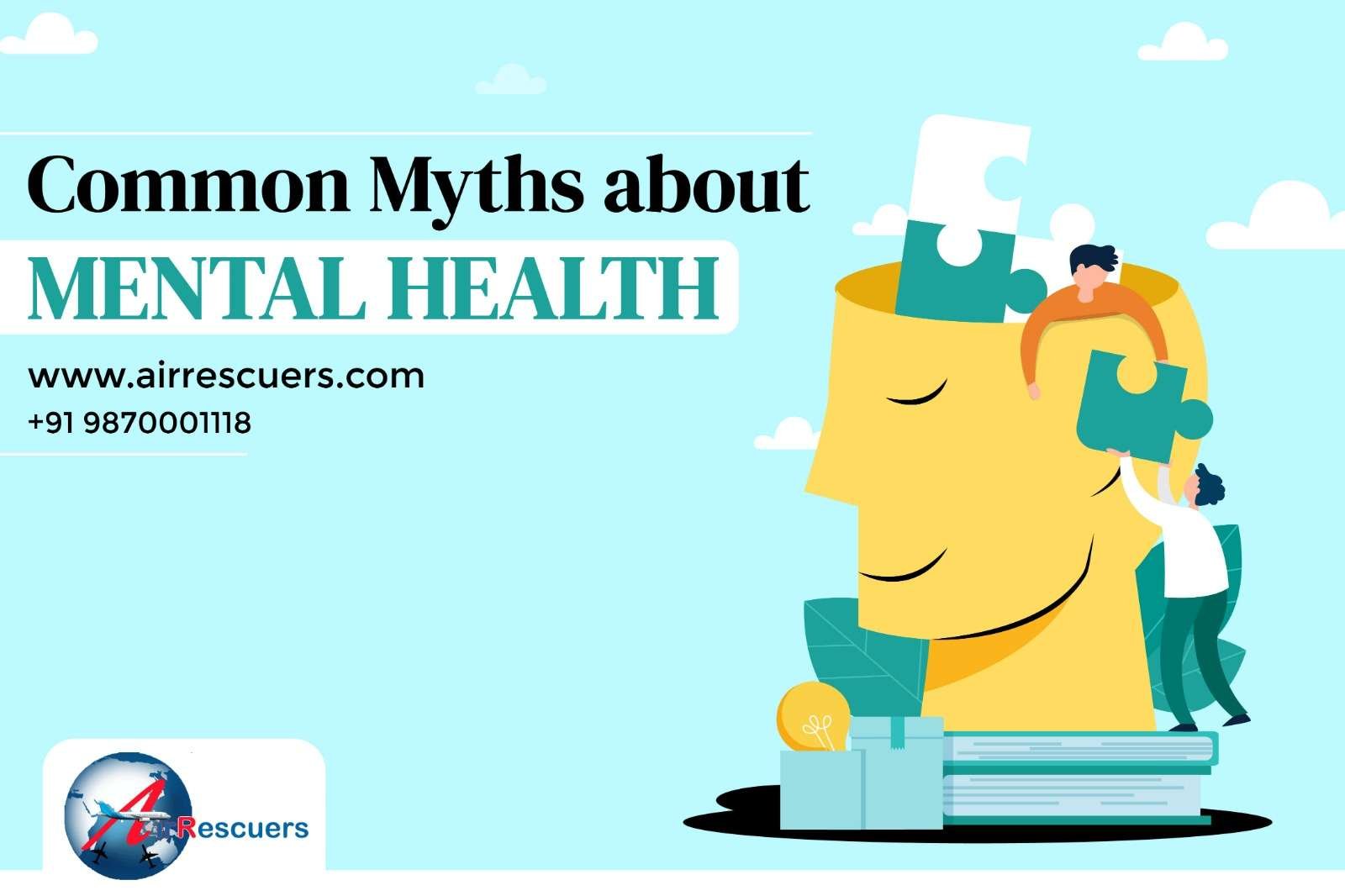
Common Myths About Mental Health | Air Rescuers
Mental health is an important aspect of our overall well-being, yet it is often misunderstood and surrounded by various myths and misconceptions. These mistaken beliefs can not only stigmatize individuals struggling with mental health conditions but also hinder their access to proper treatment and support.
In this blog, we will debunk some of the most common myths about mental health and shed light on the truth behind them.
Myth 1: Individuals Struggling with Mental Health Issues Are Weak or Lethargic
Another common myth surrounding mental health is the notion that individuals dealing with mental health problems are weak, lazy, or simply seeking attention.
This misconception trivializes the often debilitating symptoms experienced by those with mental health conditions and undermines the very real challenges they face. Mental health problems are not a result of personal weakness or lack of motivation; they are medical conditions that require understanding, compassion, and appropriate treatment.
Myth 2: You Just Need to “Snap Out of It” or “Cheer Up”
Telling someone with a mental health problem to “snap out of it” or “just cheer up” is not only unhelpful but also harmful. One’s choice or willpower does not determine mental health issues. They are complex disorders that require professional intervention and support. Just as you wouldn’t expect someone with a broken leg to instantly heal themselves, you shouldn’t expect individuals with mental health problems to simply overcome their struggles without appropriate treatment and understanding.
Myth 3: Mental health problems cannot occur in children
Adolescents and children can and do encounter mental health issues. Conditions such as anxiety disorders, attention-deficit/hyperactivity disorder (ADHD), and depression can manifest in young individuals. However, these issues may often be overlooked or dismissed as a normal part of growing up. It is essential to recognize the signs of mental health problems in children and seek appropriate help, as early intervention can significantly improve long-term outcomes.
Myth 4: Mental Health Problems Are Rare and Uncommon
Mental health problems are far from rare or uncommon. In fact, they are quite prevalent globally. According to the World Health Organization (WHO), approximately 1 in 4 people will experience a mental health disorder at some point in their lives. These conditions can vary in severity, ranging from mild to severe, but the prevalence highlights the importance of addressing mental health and reducing the stigma associated with it.
Myth 5: The Only Way to Treat Mental Health Issues Is with Medication
While medication can be beneficial for some individuals with mental health problems, it is not the sole solution. Mental health treatment often involves a combination of approaches, including therapy, counseling, lifestyle changes, and self-care practices. needs. It is crucial to approach mental health from a holistic perspective and consider various avenues for support and recovery.

